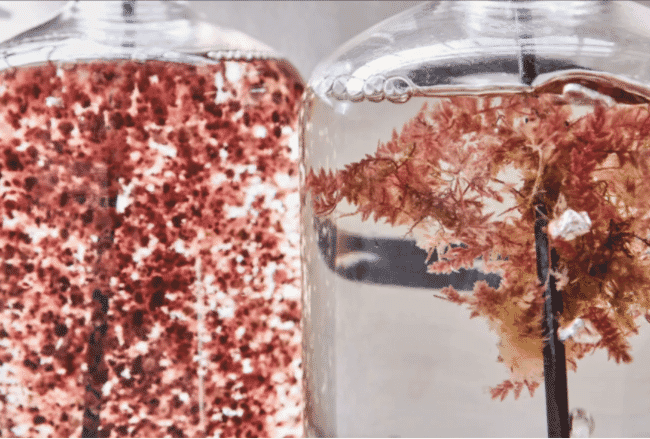
Therefore including small amounts of the seaweed in the diets of these ruminants can help to combat climate change
Greener Grazing will become an intellectual property partner with FutureFeed
to support the ocean growing development and operations of established and emerging Asparagopsis cultivation and production companies.
To date, Greener Grazing has managed to overcome some of Asparagopsis’ challenges to stabilise the production large numbers of viable spores continuously that are seeded onto substrates for ocean-based cultivation.
As part of the MOU, Greener Grazing will be able to supply seeded ropes to FutureFeed licensees and emerging cultivators, as well as providing advisory support and results analysis. Moreover, facility assessments and training can be provided, which may assist in areas such as establishment of seedbanks, hatcheries and nurseries.
FutureFeed CEO Alex Baker said in a press release: “This MOU will leverage Greener Grazing’s vast knowledge in the ocean-based cultivation of Asparagopsis with the aim of accelerating supply of quality seaweed as an effective natural solution to eliminate methane emissions from ruminant animal primary production globally.”
Greener Grazing CEO Josh Goldman added: “We can’t wait to share our learnings and ultimately help others in the field deliver much-needed global-scale transformational benefits.”
The Greener Grazing team is home to world-renowned seaweed experts, including Dr Leonardo Mata, who has worked and published 20 research papers on Asparagopsis aquaculture and biotechnology since 2002, and Dr Phil Kerrison, who has extensive research experience on seaweed attachment and optimising artificial substrates. The company’s work has received support from major philanthropic organisations from around the globe.




